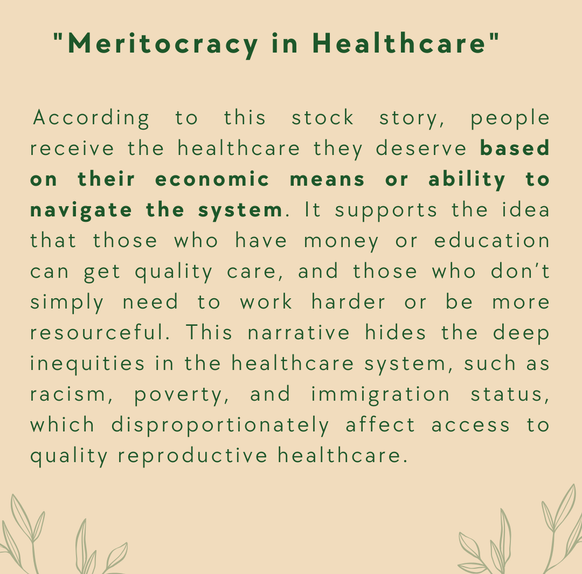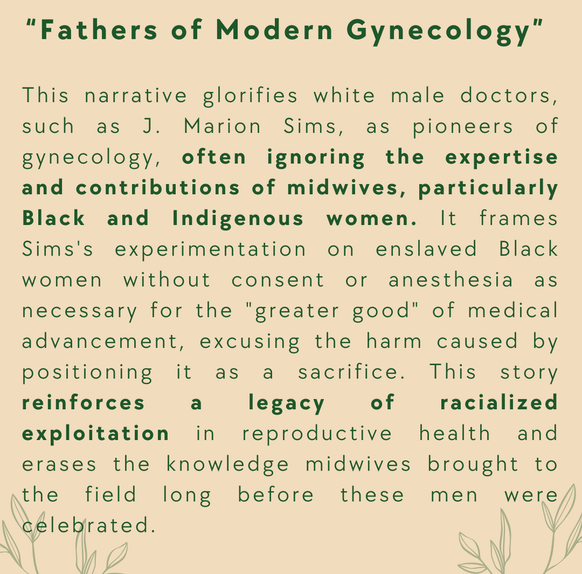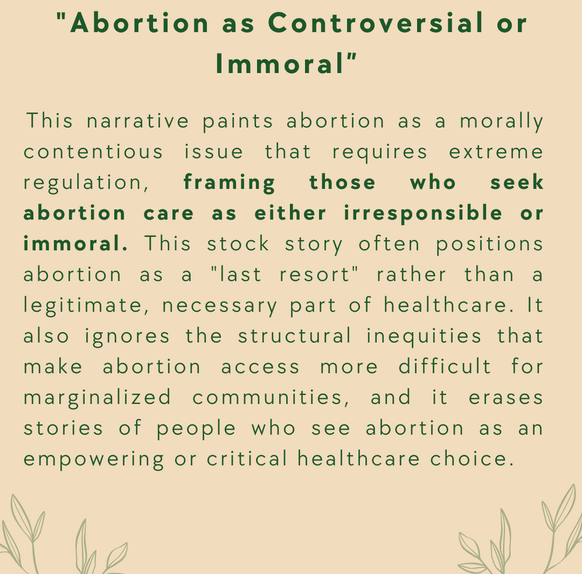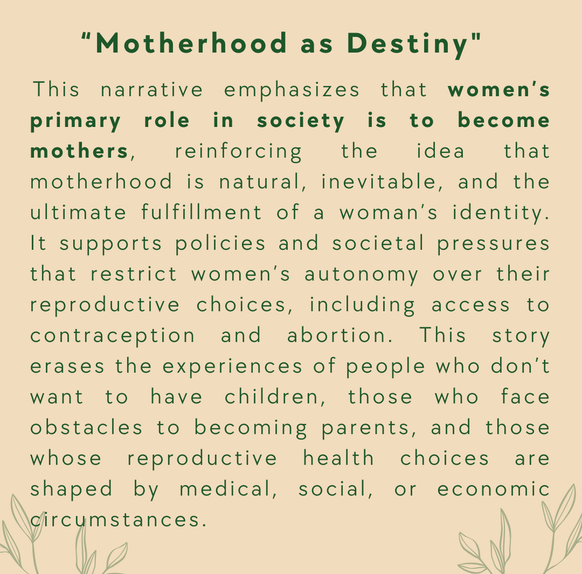
Stock Stories
Stock stories are the mainstream narratives that sustain and normalize systems of inequality. In reproductive health, they serve to obscure the realities of reproductive injustice, perpetuating myths about access, responsibility, and morality that benefit those in power while marginalizing vulnerable communities. By uncovering and challenging these stock stories, we can make space for concealed, resistance, and emerging stories that more accurately reflect the experiences and struggles of those fighting for reproductive justice.
In the context of reproductive health and justice, below are some examples of stock stories:
Impact of Stock Stories
When the medical system is seen as the ultimate authority, a person may feel pressured to silence their intuition and defer to medical professionals’ decisions, even when those decisions conflict with their personal values or comfort. During labor, this can lead to interventions that aren’t fully explained or collaboratively chosen, ultimately undermining the individual’s sense of agency and empowerment.
When reproductive health is framed solely as an individual’s choice and responsibility, those facing obstacles may feel shame or blame for not making the “right decisions,” rather than receiving compassionate support. This narrow perspective ignores systemic barriers—like inequitable access to care or cultural pressures—that can significantly shape people’s reproductive outcomes.
Believing motherhood is every person’s inevitable duty can create intense pressure or shame for those who choose a different path, overshadowing their autonomy in reproductive decision-making. This rigid narrative can limit open discussions, stifle supportive care, and perpetuate stigma around alternative choices or experiences.
When two-parent heterosexual families are idealized as the only valid option, it can marginalize single parents, queer couples, and other family structures, making them feel excluded and invalidated. This stigma may lead to insufficient support or discrimination within healthcare settings, compromising the quality of reproductive care and birth experiences.







